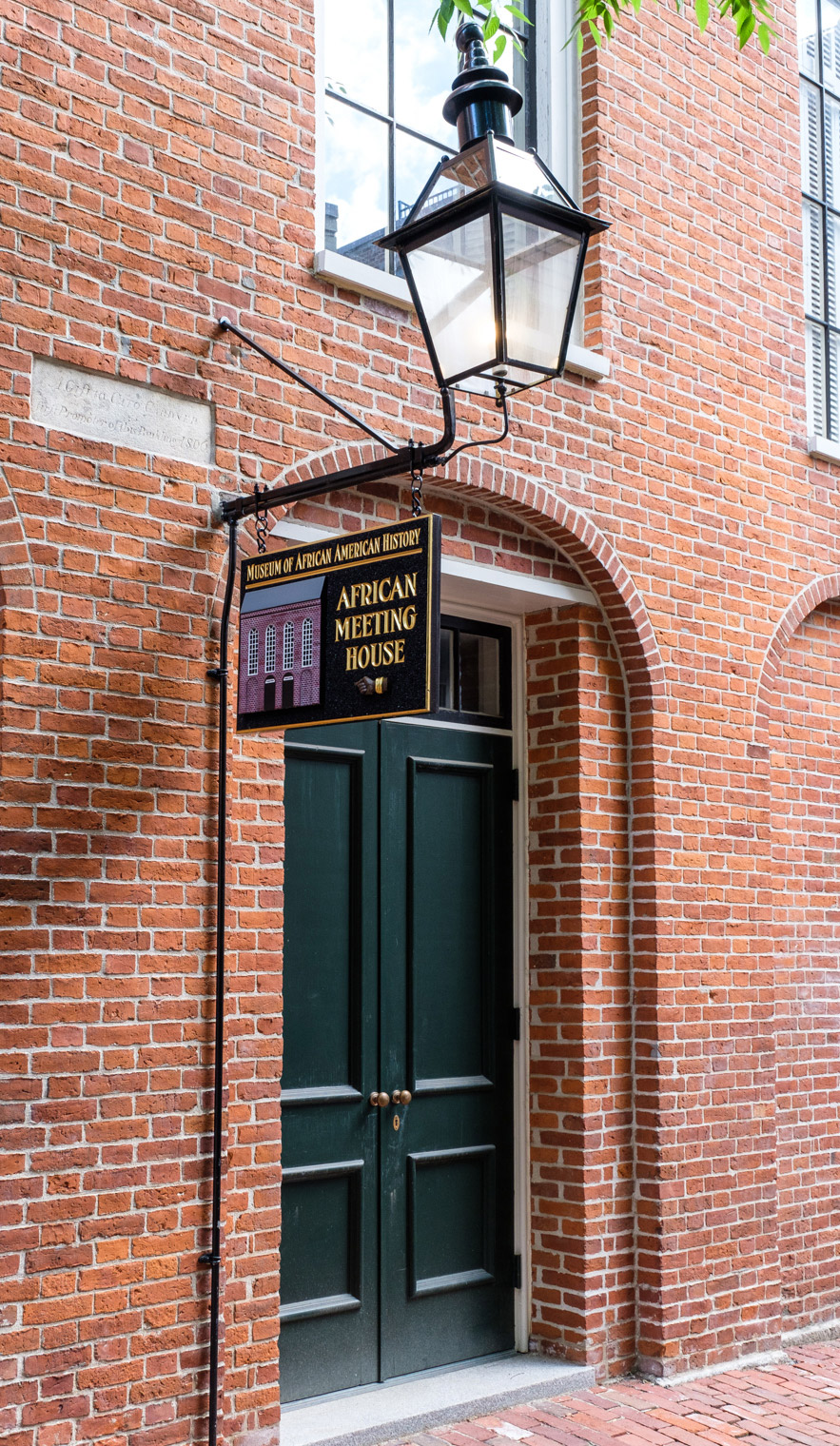Retracing Boston’s African American History
Black Heritage Trail recalls 19th-century life on Beacon Hill

The African Meeting House is one of the highlights on the Black Heritage Trail tour. Photo courtesy of Flickr contributor alh1
Following African American History through Boston
Learn about significant landmarks on the National Park Service’s Black Heritage Trail tour
About 300 years ago, the northern slope of Beacon Hill became home to Boston’s first free African American community, one that would contribute to the city’s rich history. Retrace the steps of historical figures and leaders on a Black Heritage Trail tour, a 90-minute, 1.5-mile walk led by park rangers from the National Park Service’s Boston African American National Historic Site.
The Black Heritage Trail tour begins near the Robert Gould Shaw and Massachusetts 54th Regiment Memorial sculpture on the Boston Common, across from the State House on Beacon Street. The bronze relief sculpture, by Augustus Saint-Gaudens, memorializes some of the first African Americans to fight in the Civil War. From there, the tour takes you to 14 sites, ranging from meetinghouses to schools, and residences of cultural significance—the largest collection of sites in the country documenting the lives of free African Americans prior to the Civil War and focusing on early struggles for equality and justice.
Among the tour’s highlights is the Abiel Smith School. Built in 1834, it was the first building in the country constructed specifically as a public school for black children and today is a National Historic Landmark. The building later became the headquarters for black Civil War veterans. Now it is home to the Museum of African American History, which has a series of exhibitions. It is the largest African American museum in New England and maintains four historic sites in Boston and Nantucket. Museum tickets are $8 for students and seniors, and $10 for adults. Children under 12 are admitted for free.
The tour ends at the African Meeting House, which is adjacent to the Abiel Smith School. The building, which was constructed in 1806, is the oldest extant black church edifice in America. The New England Anti-Slavery Society was founded by William Lloyd Garrison in the Abiel Smith School in 1832 and a number of prominent abolitionists, including Frederick Douglass, spoke from the church’s pulpit. The Meeting House has been restored to how it looked in 1855 and still serves as a meeting place for public and private events. It was acquired by the Museum of African American History in 1972 and has been listed as a National Historic Landmark. You can learn more about the building’s rich history here.
For those who wish to take a self-guided tour, maps and pamphlets can be picked up at Faneuil Hall or the Abiel Smith School. A map of the tour locations can be accessed here. You can also download an audio tour, created by local high school students and endorsed by the Museum of African American History, for 99 cents.
Guided Black Heritage Trail tours meet at the Robert Gould Shaw and 54th Massachusetts Regiment Memorial on the Boston Common and depart at 10 am and 1 pm Monday through Saturday. Tours are free and open to the public, but are limited to about 25 people due to the narrow sidewalks and small neighborhoods, so it’s best to get there a bit early. September 1 through October 26, tours are only at 1 pm. Check here for the most current information. To get there, take an MBTA Green Line trolley to Park Street.
Comments & Discussion
Boston University moderates comments to facilitate an informed, substantive, civil conversation. Abusive, profane, self-promotional, misleading, incoherent or off-topic comments will be rejected. Moderators are staffed during regular business hours (EST) and can only accept comments written in English. Statistics or facts must include a citation or a link to the citation.